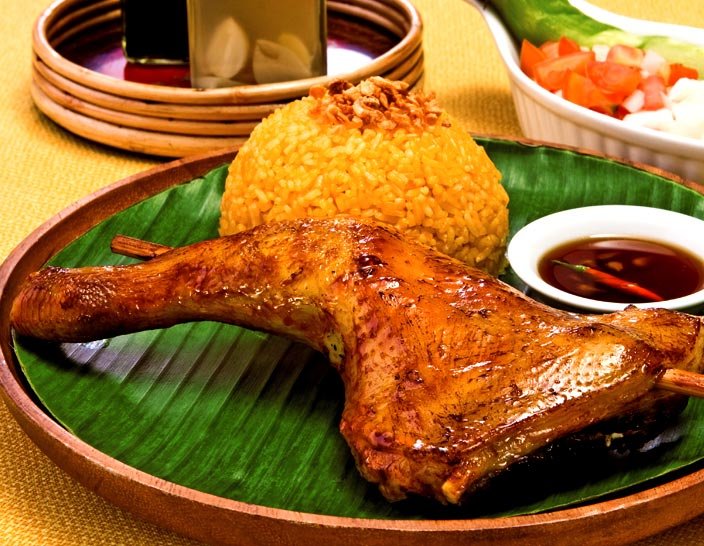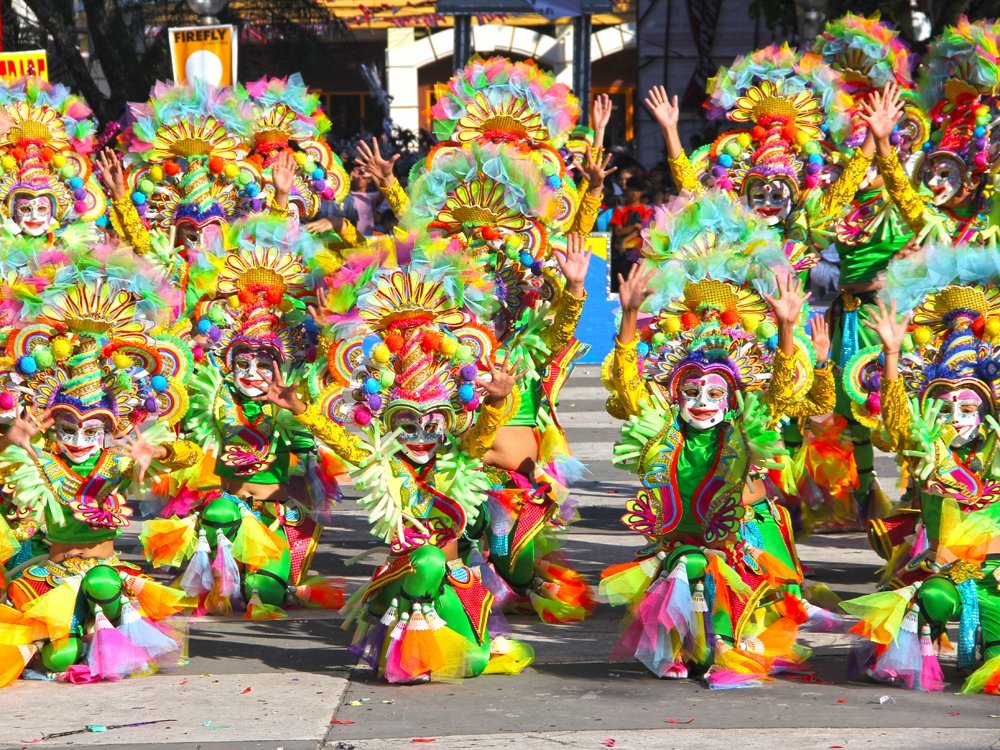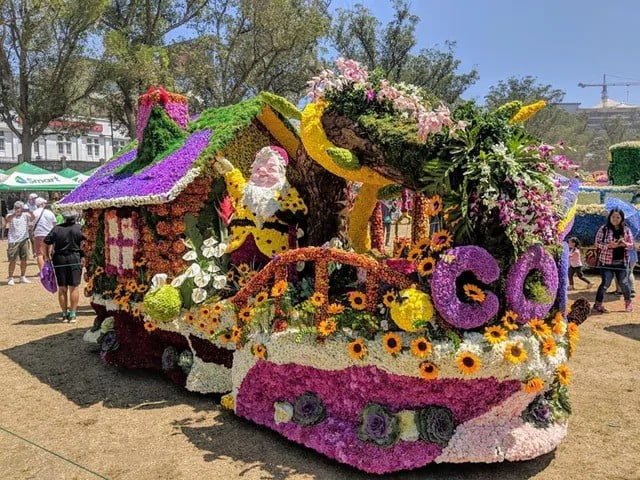The Masskara Festival is an annual event celebrated with vibrancy and enthusiasm in Bacolod City, Philippines, known as the “City of Smiles.” Held every fourth Sunday of October, this colorful festival features a multitude of dancers donning elaborate masks adorned with feathers, flowers, and sparkling sequins. Since its inception in the 1980s, the Masskara Festival has evolved into a symbol of Bacolod City’s resilience and jubilant spirit, attracting tourists from across the globe to participate in the revelries.
Owing to its cultural significance, the festival serves as a testament to the city’s ability to turn adversity into a source of pride and joy. The streets of Bacolod become a canvas for a spectacle of dance competitions, street parties, and a grand parade showcasing the artistry of the local craftsmen in mask-making. The atmosphere is electric, with live music, traditional food, and exhibitions that encapsulate the city’s rich heritage and artistic talents.
Key Takeaways
- The Masskara Festival is a vibrant annual celebration that embodies the spirit of Bacolod City, distinguished by its ornate masks and spirited dance events.
- It symbolizes the cultural resilience of Bacolod, combining artistic expression with historical significance to create an exuberant atmosphere.
- Visitors can experience a broad range of activities, from dance competitions to traditional cuisine, highlighting the festival as a pinnacle event for local and international tourists.
History and Significance
The Masskara Festival, a vibrant symbol of resilience, commemorates both the endurance and the jubilant spirit of the people of Bacolod City in the face of adversity. It showcases the rich culture and the festive character intrinsic to the city known as the “City of Smiles.”
Origins and Evolution
The Masskara Festival began in 1980, a response to a period of crisis for Bacolod City, Negros. The local community faced a sugar industry crisis coupled with the tragic sinking of the MV Don Juan ferry, which claimed the lives of many Negrenses. The inaugural event served as a declaration by the Spirits of the Locals to overcome their difficulties with hope and unity, and it has since evolved into an annual cultural spectacle.
Chronological Highlights:
- 1980: Launch of the first Masskara Festival.
- Early 1980s: Rapid development of festival activities and increased participation.
- 21st Century: The festival gains international recognition, drawing visitors from around the globe.
Symbolism and Themes
The term “Masskara” is a fusion of the English word ‘mask’ and the Filipino word ‘cara,’ meaning face – a nod to the masks adorned with smiles that epitomize the festival’s ethos. These masks reflect the Spirits of the Locals in their perseverance and optimism.
Key Symbols:
- Masks: Signify the collective resilience and joy of Bacolod’s citizens.
- Dance: Represents the dynamic spirit and cultural harmony of the community.
Impact on Bacolod City
Masskara Festival’s emergence significantly influenced both the cultural fabric and the economy of Bacolod City, Philippines. It has become a pivotal event for local commerce, spurring growth in tourism and business.
Economic and Cultural Influence:
- Tourism: Attracts thousands of visitors, boosting local businesses.
- Culture: Serves as a platform for artistic expression and preservation of local traditions.
Festival Events and Attractions
The Masskara Festival is famed for its vibrant and elaborately designed events that capture the essence of the Filipino spirit and cultural heritage. Spanning various locations within Bacolod City, from the public plaza to Lacson Street, the festival boasts a series of attractions that include dance competitions, beauty pageants, and immersive night events.
Street Dance Competition
One of the highlights of the Masskara Festival is the Street Dance Competition, where groups clad in colorful, elaborate costumes and masks perform rhythmic festival dances. These displays of choreography and artistry take place at the city’s public plaza, drawing enthusiastic crowds.
Beauty Pageant
Each year, the Masskara Queen beauty pageant garners attention as talented and empowered women compete for the prestigious title. The beauty competition not only showcases physical attributes but also celebrates intelligence and cultural understanding.
Float Parade and Exhibits
Attendees can marvel at the creativity and craftsmanship displayed during the Float Parade and Exhibits. Innovative designs and festive themes characterize floats that parade down San Sebastian Street, turning the city into a moving tapestry of Bacolod’s artistic talents.
Electric Masskara and Nightly Events
As the sun sets, the Electric Masskara brings a surge of energy to the festival with breathtaking light shows and street parties. Nightly events take over Lacson Street, transforming it into a hub of music, dance, and celebration that continues into the early hours, ensuring that the vibrancy of the Masskara Festival resonates day and night.
Cultural Significance
The Masskara Festival is a vibrant event that reflects the rich culture and history of Bacolod City, showcasing local music, dance, and craftsmanship. This section explores the impact Masskara Festival has on cultural expression through performance and art.
Music and Performances
The festival features a harmonious blend of Music Festivals and Street Dance, the sounds and movements becoming the pulse of the city during the celebration. Bands perform live, employing a variety of traditional and contemporary Filipino music, which resonates with both locals and tourists. The Dance Competition, an integral component of the festival, highlights synchronized choreographies where participants are judged on their performances. These dances are not only a form of entertainment but also a mode of cultural preservation, teaching and reinforcing the value of teamwork and local heritage.
Artistry and Craftsmanship
The Masskara Festival is renowned for its Colorful Masks and Smiling Masks, iconic symbols of the city’s resilience and cheerful spirit. Artisans take pride in designing and creating these masks, ensuring each piece is unique and reflective of Bacolod’s artistic identity. The masks often display flamboyant designs and patterns, with intricate craftsmanship evident in the details. Through these masks, the festival becomes a canvas for local artists to convey both individual creativity and collective cultural identity.
Practical Information
In preparing for the Masskara Festival, visitors should focus on arranging travel and accommodations early, consider dressing for both comfort and festivities, and be ready to explore the local cuisine of Negros Occidental.
Travel and Accommodation
Travelers heading to Masskara Festival should book flights and hotels well in advance due to the popularity of the event. Bacolod-Silay Airport serves as the primary gateway to the region. Accommodation options range from budget inns to luxury hotels. It is essential to stay in accommodations close to the festival venues for convenience.
- Booking Flights: Aim for early bookings; check airlines for direct flights to Bacolod.
- Hotels: Book near festival hubs; luxury and budget options available.
- Local Transport: Taxis and tricycles are commonly used for shorter distances.
What to Wear and Bring
Comfortable shoes are a must for enjoying the festival’s street dances and parties while navigating the crowds without fatigue. The weather can be unpredictable, so light, breathable clothing with a rain poncho can be practical. A water bottle and sun protection are also advised for daytime activities.
- Apparel: Light, comfortable clothing with layers for the evening.
- Footwear: Comfortable shoes for extensive walking.
- Essentials: Water bottle, sunblock, rain gear, and a hat.
Local Cuisine Recommendations

Masskara Festival attendees should not miss out on the famous Chicken Inasal, a mouthwatering grilled chicken dish marinated in local spices that is synonymous with Bacolod cuisine. Other delicious dishes and fun drinks unique to Negros Occidental are widely available, offering an opportunity to indulge in the region’s culinary delights.
- Chicken Inasal: A must-try at local eateries.
- Delicious Dishes: Seafood, sweets like piaya, and fresh fruits.
- Drink and Party: Explore local bars and street parties; try the sugarcane wine called ‘tuba’.
Planning and Participation
Effective planning and active participation are essential for making the most of the Masskara Festival experience. This section provides details on schedules and venues, along with practical tips for enjoying the festival to its fullest.
Schedules and Venues
Bacolod City Government releases the official Masskara Festival schedule months in advance. The festival, being one of the most vibrant Festivals in the Philippines, typically takes place in October. During this time, multiple events are spread across the city’s venues, including the Bacolod City Government Center, among others.
- Main Events: Street dance competitions, beauty pageants, and music concerts.
- Dates: Specific dates vary yearly; verify with official sources.
- Locations:
- Street Dance Competition: Bacolod Public Plaza
- Concerts and Live Performances: Bacolod City Government Center Grounds
- Carnivals and Exhibits: Various locations throughout the city
Tips for Enjoying the Festival
To fully enjoy the Masskara Festival, consider the following suggestions:
- Accommodations: Book hotels well in advance due to high demand during the festival period.
- Attire: Wear comfortable clothing and shoes suitable for tropical weather and extensive walking.
- Hydration: Keep hydrated—carry a water bottle to deal with the heat and crowds.
- Transportation: Plan for traffic; utilize public transport or car-sharing services to navigate between venues.
- Safety: Maintain awareness of personal belongings and adhere to festival security protocols.
Frequently Asked Questions
The MassKara Festival is a vibrant and colorful event celebrated in the Philippines. This section answers common questions about its history, significance, and traditions.
What is the historical background of the MassKara Festival?
The MassKara Festival was introduced in the 1980s as a form of local government and civic group initiative to uplift the spirits of the people of Bacolod City during a period of crisis, which included a tragedy at sea and an economic downturn due to the collapse of the sugar industry.
How did the MassKara Festival originate and where is it celebrated?
Originating in the city of Bacolod in 1980, the MassKara Festival is a symbolic gesture to demonstrate the resilience and smiling faces of its citizens despite economic challenges. It is celebrated in Bacolod, which is located in the Negros Occidental province of the Philippines.
What are the symbolic meanings behind the masks worn during the MassKara Festival?
The masks are a distinctive feature of the festival, symbolizing the happy faces that mask the hardships and struggles of the people in times of trouble. They are ornately designed, often with smiling faces, feathers, and beads, representing optimism and the fighting spirit of the locals.
What types of cuisine and food are traditional at the MassKara Festival?
Traditional Filipino dishes, especially those from the Negros region, are showcased during the festival. Inasal na manok (grilled chicken) and batchoy (noodle soup) are particularly popular, along with sweet treats made from sugar cane, like piaya and napoleones.
Can you describe the traditional costumes associated with the MassKara Festival?
The traditional costumes worn during the MassKara Festival are usually colorful, with a heavy emphasis on festival-themed motifs, feathers, and sequins. They complement the masks and are designed for dance performances, showcasing the region’s rich culture and artisans’ creativity.
How does the MassKara Festival stand out from other festivals in terms of uniqueness?
The MassKara Festival is unique in its embodiment of the spirit of Bacolod City as the “City of Smiles.” It is distinguished by its display of vividly colorful masks, high-energy dance competitions, street parties, and the inherent warmth and resilience of the local community despite economic adversities.

